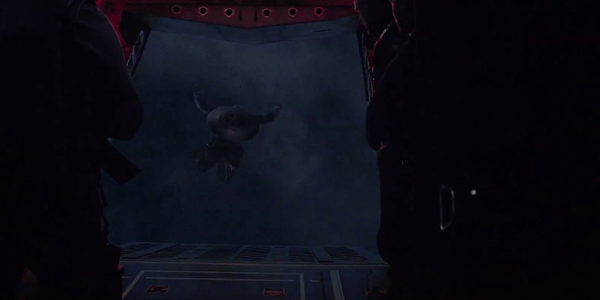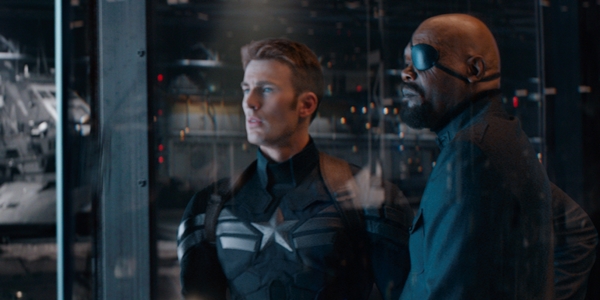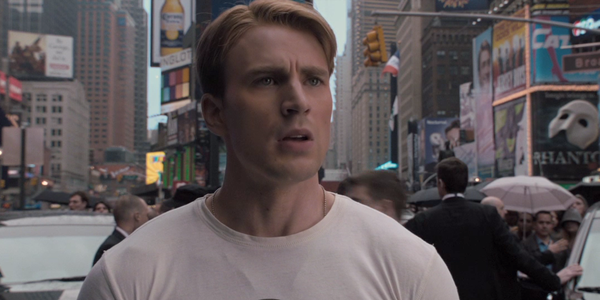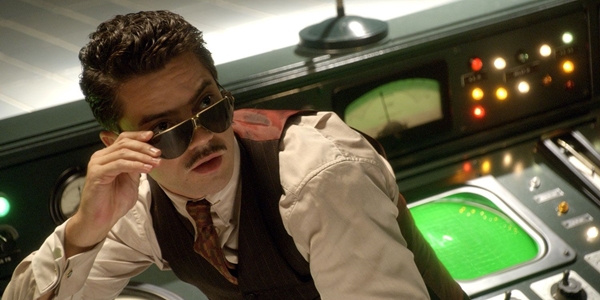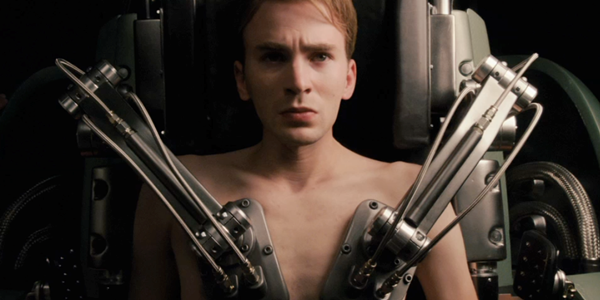DarthDorranceBane
Sidekick
- Joined
- Sep 2, 2012
- Messages
- 1,158
- Reaction score
- 0
- Points
- 31
http://whatculture.com/film/12-reasons-captain-america-makes-best-standalone-marvel-movies.php
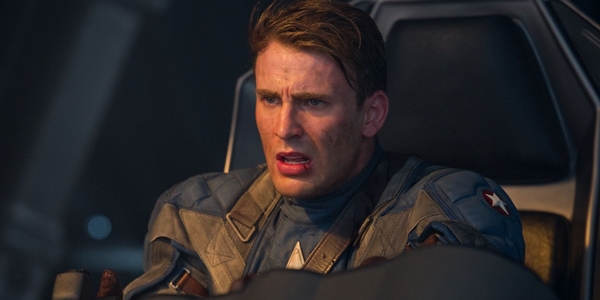
Although the main draw of Marvels Cinematic Universe is the Avengers, there needs to be entertaining standalone films that are more than just filler for audiences waiting for Joss Whedon assemble the gang. Thankfully theyve been delivering, with a string of hits that more than justify themselves next to the New York-threatening team-up.
The latest of these, Captain America: The Winter Soldier, is here and continues the good work of Iron Man Three and Thor: The Dark World, marking out the MCU as an increasingly unique approach to the superhero genre. Bringing man-out-of-time Steve Rogers back to the leading man status, its one of Marvels most mature films and certainly their most tensely plotted.
The film is so good, in fact, its probably the best Marvel standalone movie weve got so far. With a cast of characters who all get their moment without distracting from its titular hero, its a high mark that the rest of the years blockbusters should aim for.
2011s The First Avenger was likewise a strong, if more romp-y, film that really embraced the characters legacy (hes been a stalwart of Marvel longer than Spider-Man and the X-Men). All of which leads us to this conclusion; Captain America makes the best standalone Marvel movies. Dont believe us? Heres twelve reasons why.
12. They Have Distinct Styles
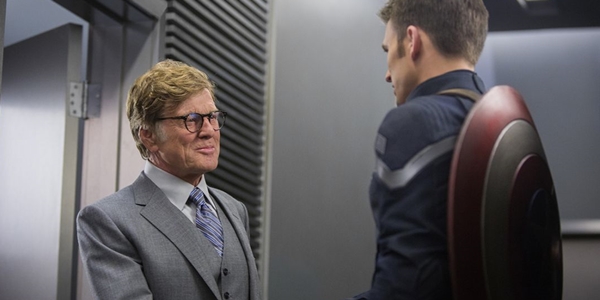
Even though its been a fully fledged drama for nigh on fifteen years now, superhero flicks still follow a very rigid type; their plotting is just a redressing of the typical good guy-bad guy blockbuster plot. You can get crime-epics like The Dark Knight or allegorical twists like X2, but theyre really exceptions to the rule.
This effect is only compounded when a film is part of a strict brand. Yet within the confines of what makes up a Marvel movie, Captain Americas outings manage stand out; the two weve had so far have both felt incredibly distinct, reminiscent of completely different genres of cinema.
The First Avenger was a kinda-war movie, although it also flirted close to the adventure stylings of Indiana Jones, while The Winter Soldier probably cast Robert Redford purely on the back of him starring in Three Days Of The Condor, a quintessential seventies thriller, just to push that conspiracy feel.
Maybe its because Steve Rogers isnt as dominating a personality, meaning he fits better into multiple types, but not only are his movies the most distinct in tone, theyre the only Marvel films to seriously attempt it; the closest is Kenneth Brannaghs stab at Shakespearing things up with Thor, but that wasnt very prevalent.
11. His Movies Lead The Universe Into The Avengers
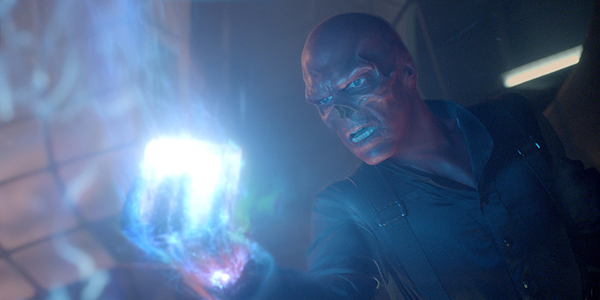
With the thrill of all the heroes on screen together still pretty fresh and coming at the end of the studios story Phases, the Avengers movies are the focal points of the series, marking the biggest shift in the universe. Which puts a lot of pressure (and potential) on the films that precede them.
While Guardians Of The Galaxy is technically the film preceding Avengers: Age Of Ultron, it looks set to be a little more separated from the Earth-bound events, meaning narratively The Winter Soldier is the final piece of set-up. Not only does this allow Cap to cover any distance the films earlier in the Phase slacked on, it means the events of the film carry a greater weight; The First Avenger gave us a couple of hours with the tesseract and The Winter Soldier leveled the playing field ready for Ultron.
Its scheduling convenience that has allowed this trend to emerge, but its very believable part of Caps appeal comes from where he sits in the release plan. Well just have to see how coming in the middle of Phase III affects Captain America 3 come 2016.
10. An Element Of Vulnerability
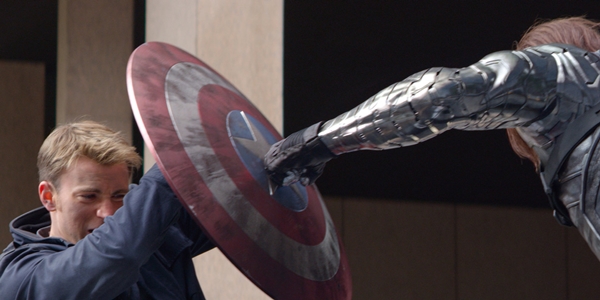
Man Of Steels fighting grew old for many after the novelty of finding out what happens when an unstoppable force meets an easily destructible object wore off. For action to thrill rather than just being a controlled demolition there needs to be an element of vulnerability; a chance the hero may not make it through. Which in the confines of a type of film where the heroes survival is confirmed is tricky.
To do it right requires some clear strengths and weaknesses of the hero; a tangible threat and the presence of hope. Now which Marvel hero does that?
Not Iron Man. His suits are Mjölnir-proof unless the plot needs them damaged, while the percentage of power left is always a delightfully inaccurate reading. Thor faces the same problems as Superman, needing a non-physical threat to weaken him (which makes the action often superfluous). And its such a problem with Hulk that hes been stuck in the ensemble movies (for now).
Oh, so its Captain America, what a surprise. Hes the only Marvel hero where the dangers of falling from great height or being riddled with bullets are a constant threat and not just plot-convenient.
9. The Love Interests Dont Overstay Their Welcome
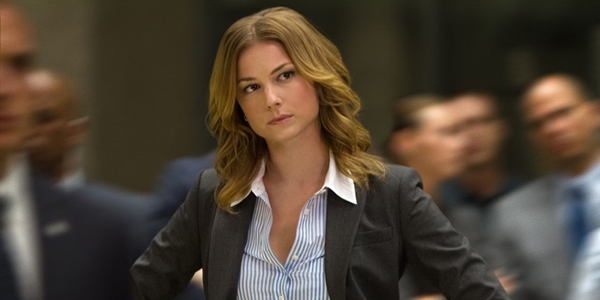
The heroes love interest is a trope that, like super-power villains, isnt actually necessary in crafting a good story (along with super-powered villains). Not resigned to one genre, but blockbusters in general, whenever a film with a twist on the cliché comes along (we thank you, Christopher Nolan) its refreshing.
But well settle with merely downplaying it. In The First Avenger Peggy was given actual character, which helped, but what made her palatable was that Steve (and the film) wasnt as bothered with her as he was with best bro Bucky. Thats nothing compared to what The Winter Soldier pulls though. In the comics the sister of Peggy, the implication is that Agent 13, tasked with keeping an eye on an time-adjusting Cap, is a granddaughter/niece to the originals romance. But instead of bigging that up the film keeps her story permanently on the back-burner (probably because a sequel was highly likely), sowing seeds of romance instead of going for love at first sight.
Compare this with Tony Starks inconsistent relationship with Pepper Potts or the unbelievably contrived Jane Foster (played by contractual force by a reluctant Natalie Portman) and its a nice change of pace.
8. CGI-Lite Action
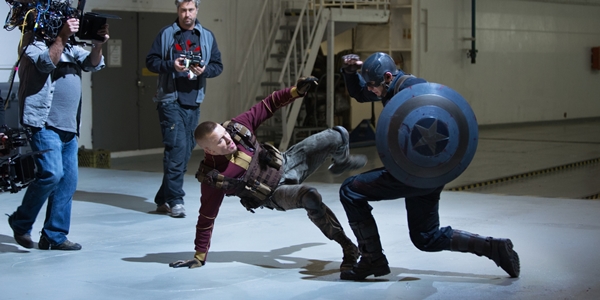
Its a given in modern blockbusters that your finale will be a CGI extravaganza. There needs to be that money shot that sticks in peoples memories/caps off a spoilerific trailer. But in addition to the race-against-the-clock finale (when isnt it?) theres going to be a series of smaller-scale action that builds excitement and also push the plot along. Its simple formula.
Because it takes less to be a threat to Cap and the wider cast of characters his stories employ, the general action doesnt need to be as overblown. So while the finale of his films are massive (The Winter Soldier in particular), the earlier action can be a little more reigned in and, gasp, light on CGI.
Which all serves to make things feel that little bit more real; we say it a lot, but audiences eyes are pretty good at picking up when theyre being lied to. So when a real person is punching another real person, its going to get your adrenaline pumping a little faster and that bit involved in the events on screen.
Not being nigh on invunerable (i.e. a God or requiring a suit of armour to fight) is unique to Cap in the MCU, so that gives him a distinct advantage.
7. Chris Evans Plays Against Type
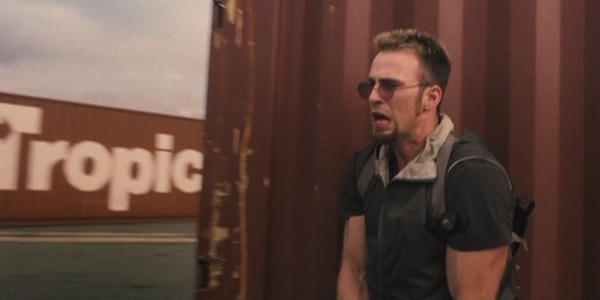
When bringing a superhero from page to screen, the casting can make or break a film. Balancing pleasing fans and creating an accessible story for everyone else in is task many (Daredevil, Catwoman spring to mind) have totally mucked up before. Its therefore an easy solution to go for an actor whose back catalogue is already in sync with the hero at hand.
Jack Nicholson, who has made a career out of being a bit of a psycho, was perfect fit for Tim Burtons Joker and delivered an impressive performance. Heath Ledger, Frankie Vali cover-er and gay cowboy, caused fan uproar when he was cast as the Clown Prince of Crime, but ended up actually bettering dependable Jack. Sometimes not being an obvious choice benefits a character because they have to, well, act.
So while Robert Downey Jr. as Tony Stark (his biggest role post-rehab) and Chris Hemsworth as Thor (whose James Hunt in F1 adrenaline-pumper Rush is essentially an Asgardian substitute, albeit with added swearing) are obvious choices, the ones who get the most from their role are ones who arent in familiar territory. In the years leading up to The First Avenger Chris Evans had fallen into a lot of supporting roles that had him be either (intentional) unlikable or a bit of a fop; he had to work to become Cap.
6. The Writers Have To Work To Make Cap Bearable
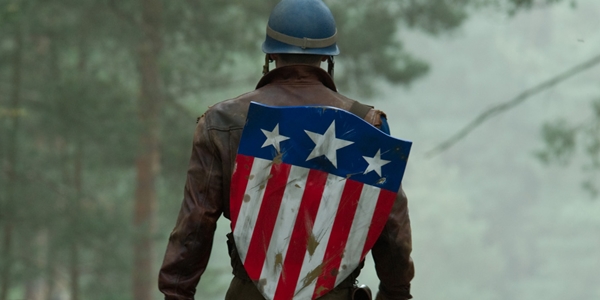
Easy subjects can lead to less effort being required and subsequently lazy writing. And to make Captain America into a blockbuster with the capabilities of denting the worldwide box office is no easy task. His very name will put off whole countries (and did, with The First Avenger being the originals full title in some territories), while even those with some appreciation of American culture could easily find his induced flag waving a little sickening.
Even though the comic character has moved on from his WWII propaganda days, its still a spectre on his reputation, meaning the stories need to work to make sure they appeal as stories, rather than just being a backdrop to the character.
Prompting the question of just whats in a name, his standalone films have worked hard to keep that one-sided viewpoint from happening. The first film presented the initial character as a piece of propaganda, having the Cap of the forties comics and the in-world Steve Rogers made clearly distinct. The Winter Soldier likewise keeps thing global, not going any more into Americana than any other blockbuster (impressive given the Washington D.C. setting).

Although the main draw of Marvels Cinematic Universe is the Avengers, there needs to be entertaining standalone films that are more than just filler for audiences waiting for Joss Whedon assemble the gang. Thankfully theyve been delivering, with a string of hits that more than justify themselves next to the New York-threatening team-up.
The latest of these, Captain America: The Winter Soldier, is here and continues the good work of Iron Man Three and Thor: The Dark World, marking out the MCU as an increasingly unique approach to the superhero genre. Bringing man-out-of-time Steve Rogers back to the leading man status, its one of Marvels most mature films and certainly their most tensely plotted.
The film is so good, in fact, its probably the best Marvel standalone movie weve got so far. With a cast of characters who all get their moment without distracting from its titular hero, its a high mark that the rest of the years blockbusters should aim for.
2011s The First Avenger was likewise a strong, if more romp-y, film that really embraced the characters legacy (hes been a stalwart of Marvel longer than Spider-Man and the X-Men). All of which leads us to this conclusion; Captain America makes the best standalone Marvel movies. Dont believe us? Heres twelve reasons why.
12. They Have Distinct Styles

Even though its been a fully fledged drama for nigh on fifteen years now, superhero flicks still follow a very rigid type; their plotting is just a redressing of the typical good guy-bad guy blockbuster plot. You can get crime-epics like The Dark Knight or allegorical twists like X2, but theyre really exceptions to the rule.
This effect is only compounded when a film is part of a strict brand. Yet within the confines of what makes up a Marvel movie, Captain Americas outings manage stand out; the two weve had so far have both felt incredibly distinct, reminiscent of completely different genres of cinema.
The First Avenger was a kinda-war movie, although it also flirted close to the adventure stylings of Indiana Jones, while The Winter Soldier probably cast Robert Redford purely on the back of him starring in Three Days Of The Condor, a quintessential seventies thriller, just to push that conspiracy feel.
Maybe its because Steve Rogers isnt as dominating a personality, meaning he fits better into multiple types, but not only are his movies the most distinct in tone, theyre the only Marvel films to seriously attempt it; the closest is Kenneth Brannaghs stab at Shakespearing things up with Thor, but that wasnt very prevalent.
11. His Movies Lead The Universe Into The Avengers

With the thrill of all the heroes on screen together still pretty fresh and coming at the end of the studios story Phases, the Avengers movies are the focal points of the series, marking the biggest shift in the universe. Which puts a lot of pressure (and potential) on the films that precede them.
While Guardians Of The Galaxy is technically the film preceding Avengers: Age Of Ultron, it looks set to be a little more separated from the Earth-bound events, meaning narratively The Winter Soldier is the final piece of set-up. Not only does this allow Cap to cover any distance the films earlier in the Phase slacked on, it means the events of the film carry a greater weight; The First Avenger gave us a couple of hours with the tesseract and The Winter Soldier leveled the playing field ready for Ultron.
Its scheduling convenience that has allowed this trend to emerge, but its very believable part of Caps appeal comes from where he sits in the release plan. Well just have to see how coming in the middle of Phase III affects Captain America 3 come 2016.
10. An Element Of Vulnerability

Man Of Steels fighting grew old for many after the novelty of finding out what happens when an unstoppable force meets an easily destructible object wore off. For action to thrill rather than just being a controlled demolition there needs to be an element of vulnerability; a chance the hero may not make it through. Which in the confines of a type of film where the heroes survival is confirmed is tricky.
To do it right requires some clear strengths and weaknesses of the hero; a tangible threat and the presence of hope. Now which Marvel hero does that?
Not Iron Man. His suits are Mjölnir-proof unless the plot needs them damaged, while the percentage of power left is always a delightfully inaccurate reading. Thor faces the same problems as Superman, needing a non-physical threat to weaken him (which makes the action often superfluous). And its such a problem with Hulk that hes been stuck in the ensemble movies (for now).
Oh, so its Captain America, what a surprise. Hes the only Marvel hero where the dangers of falling from great height or being riddled with bullets are a constant threat and not just plot-convenient.
9. The Love Interests Dont Overstay Their Welcome

The heroes love interest is a trope that, like super-power villains, isnt actually necessary in crafting a good story (along with super-powered villains). Not resigned to one genre, but blockbusters in general, whenever a film with a twist on the cliché comes along (we thank you, Christopher Nolan) its refreshing.
But well settle with merely downplaying it. In The First Avenger Peggy was given actual character, which helped, but what made her palatable was that Steve (and the film) wasnt as bothered with her as he was with best bro Bucky. Thats nothing compared to what The Winter Soldier pulls though. In the comics the sister of Peggy, the implication is that Agent 13, tasked with keeping an eye on an time-adjusting Cap, is a granddaughter/niece to the originals romance. But instead of bigging that up the film keeps her story permanently on the back-burner (probably because a sequel was highly likely), sowing seeds of romance instead of going for love at first sight.
Compare this with Tony Starks inconsistent relationship with Pepper Potts or the unbelievably contrived Jane Foster (played by contractual force by a reluctant Natalie Portman) and its a nice change of pace.
8. CGI-Lite Action

Its a given in modern blockbusters that your finale will be a CGI extravaganza. There needs to be that money shot that sticks in peoples memories/caps off a spoilerific trailer. But in addition to the race-against-the-clock finale (when isnt it?) theres going to be a series of smaller-scale action that builds excitement and also push the plot along. Its simple formula.
Because it takes less to be a threat to Cap and the wider cast of characters his stories employ, the general action doesnt need to be as overblown. So while the finale of his films are massive (The Winter Soldier in particular), the earlier action can be a little more reigned in and, gasp, light on CGI.
Which all serves to make things feel that little bit more real; we say it a lot, but audiences eyes are pretty good at picking up when theyre being lied to. So when a real person is punching another real person, its going to get your adrenaline pumping a little faster and that bit involved in the events on screen.
Not being nigh on invunerable (i.e. a God or requiring a suit of armour to fight) is unique to Cap in the MCU, so that gives him a distinct advantage.
7. Chris Evans Plays Against Type

When bringing a superhero from page to screen, the casting can make or break a film. Balancing pleasing fans and creating an accessible story for everyone else in is task many (Daredevil, Catwoman spring to mind) have totally mucked up before. Its therefore an easy solution to go for an actor whose back catalogue is already in sync with the hero at hand.
Jack Nicholson, who has made a career out of being a bit of a psycho, was perfect fit for Tim Burtons Joker and delivered an impressive performance. Heath Ledger, Frankie Vali cover-er and gay cowboy, caused fan uproar when he was cast as the Clown Prince of Crime, but ended up actually bettering dependable Jack. Sometimes not being an obvious choice benefits a character because they have to, well, act.
So while Robert Downey Jr. as Tony Stark (his biggest role post-rehab) and Chris Hemsworth as Thor (whose James Hunt in F1 adrenaline-pumper Rush is essentially an Asgardian substitute, albeit with added swearing) are obvious choices, the ones who get the most from their role are ones who arent in familiar territory. In the years leading up to The First Avenger Chris Evans had fallen into a lot of supporting roles that had him be either (intentional) unlikable or a bit of a fop; he had to work to become Cap.
6. The Writers Have To Work To Make Cap Bearable

Easy subjects can lead to less effort being required and subsequently lazy writing. And to make Captain America into a blockbuster with the capabilities of denting the worldwide box office is no easy task. His very name will put off whole countries (and did, with The First Avenger being the originals full title in some territories), while even those with some appreciation of American culture could easily find his induced flag waving a little sickening.
Even though the comic character has moved on from his WWII propaganda days, its still a spectre on his reputation, meaning the stories need to work to make sure they appeal as stories, rather than just being a backdrop to the character.
Prompting the question of just whats in a name, his standalone films have worked hard to keep that one-sided viewpoint from happening. The first film presented the initial character as a piece of propaganda, having the Cap of the forties comics and the in-world Steve Rogers made clearly distinct. The Winter Soldier likewise keeps thing global, not going any more into Americana than any other blockbuster (impressive given the Washington D.C. setting).


